[dropcap size=big]C[/dropcap]alifornia voters rejected a hail-mary for relief in the state’s desperate housing crisis, casting ballots overwhelmingly against Proposition 10 amid Tuesday’s national midterm election. By midnight, no county in California besides San Francisco voted in favor of the initiative that would have allowed local governments to explore measures to control soaring housing costs for millions of cash-strapped renters in the Golden State.
* Story updated, 10:41 am.
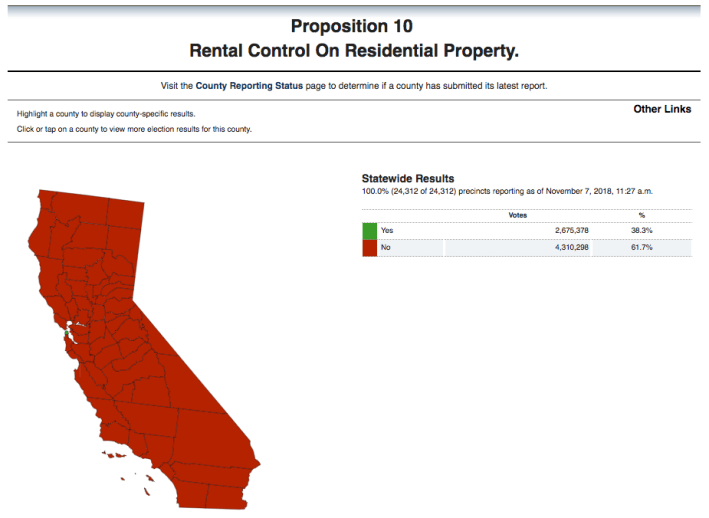
The country’s biggest and most late-voting state (besides tiny electorates Alaska and Hawaii; Oregon and Washington are entirely vote-by-mail), California also decided on its governor and one of its two senators.
Republicans were once again denied any state-level office, with Democrat Gavin Newsom handily beating Republican rival John Cox in the race to succeed outgoing Gov. Jerry Brown as chief executive in Sacramento.
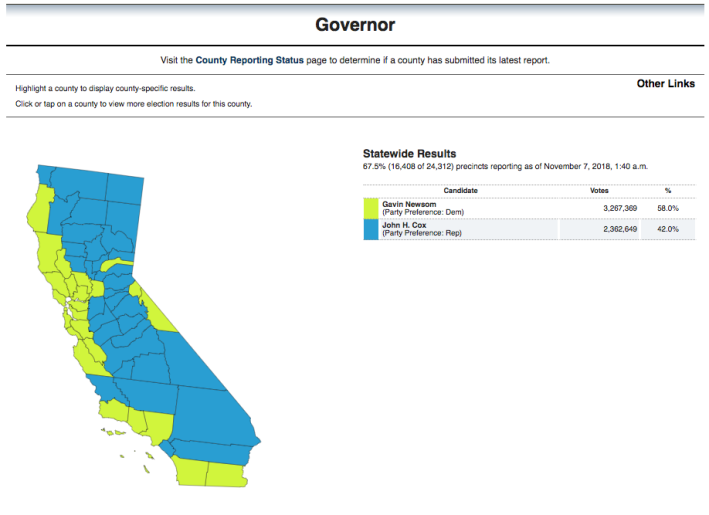
And although the national Democrats’ control of the House of Representatives was decided relatively early in the evening, an expensive contested race in the 48th District of affluent, coastal Orange County left incumbent conservative Republican Dana Rohrabacher losing his seat to Democratic challenger Harley Rouda.
That race resulted in one of the most startling upsets in a handful of toss-up ballots that were seen as critical to the Dems’ retaking of the House. In North Los Angeles County, the 25th District race between Republican incumbent Steve Knight and Democratic challenger Katie Hill turned into an upset, with Knight losing his House seat to Hill, according to the L.A. County Registrar.
Knight was the last Republican elected to Congress from Los Angeles County. Hill is a homelessness non-profit advocate who ran on a platform of refusing corporate donations.

[dropcap size=big]F[/dropcap]or U.S. Senate, the San Francisco moderate Dianne Feinstein won re-election to a fifth full term as California’s senior senator. Junior Senator Kamala Harris, also of San Francisco, was not up for re-election, meaning two women will remain at the top of the state’s delegation to the upper house of Congress.
Challenger Kevin de Leon, a Southern California progressive, lost his bid to unseat the woman who is also now the oldest senator in the United States, at 85. De Leon for many represented the prospect of a fresh and more robust opposition to the Trump administration, but he failed to win any of the key coastal population centers that are necessary to capture for statewide victory in California. De Leon didn’t even win his electoral homebase of Los Angeles County, according to official results at the Secretary of State. Feinstein won in Los Angeles, 58-41.
Nonetheless, De Leon framed the results as a victory for working-class and immigrant voters in the state, especially under the barrage of nationalist, racist, and anti-immigrant messages from the sitting U.S. president. He had about a tenth of the campaign cash on hand that Feinstein had at her disposal.

“It was a campaign with not a lot of money but lots of heart,” he told reporters in Spanish, after speaking to supporters at La Plaza de Artes y Culturas, in L.A.’s El Pueblo historic core. De Leon is of Guatemalan-Chinese descent but strongly identifies with Mexican-American culture.
“We didn’t wait for the dedazo,” he went on, using a Mexican Spanish colloquialism that refers to a king-making “finger” that indicates when aspiring Democrats get to run for office, as dictated by senior members. “We have to do everything possible to be a counterweight to this president, Donald Trump.”
It was unclear if De Leon will seek higher office or make a lateral move back in local politics here in Los Angeles.
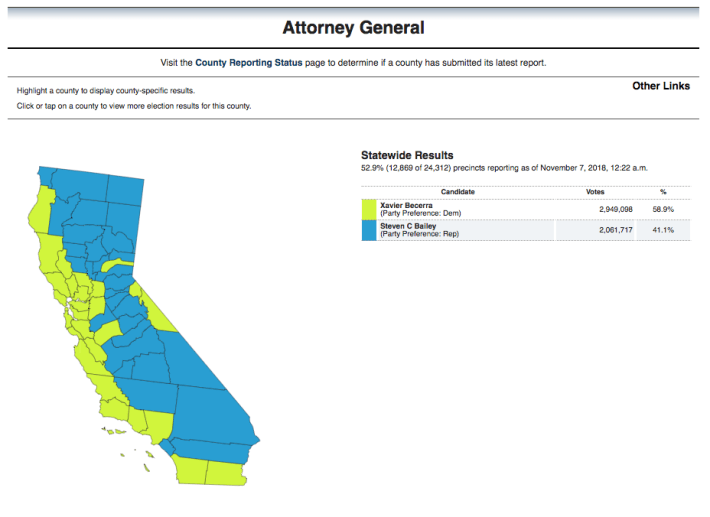
[dropcap size=big]I[/dropcap]n other state-level races, Democrat Xavier Becerra, the well-regarded former Congressman, won his first general election race in California, maintaining his post as state Attorney General after being appointed by Governor Brown, who had to fill a vacancy after former state AG Kamala Harris won a seat to the U.S. Senate.
Becerra is a leader in the pro-immigrant justice and pro-reform flank of the national Democratic party, and is seen as an active bulwark against the anti-sanctuary policies of the Trump administration.
Turnout dipped considerably on Tuesday over the 2016 election, when 75 percent of Californians eligible to vote did so; this year only 36.9 percent of eligible Californians cast ballots as of 11:27 am Wednesday, despite feverish enthusiasm nationwide to mark a referendum on the Trump White House.
Turnout was again low in Los Angeles County — with only 37 percent of voters casting ballots, compared to 41 percent in Orange County, according to state figures. [*Updated.]
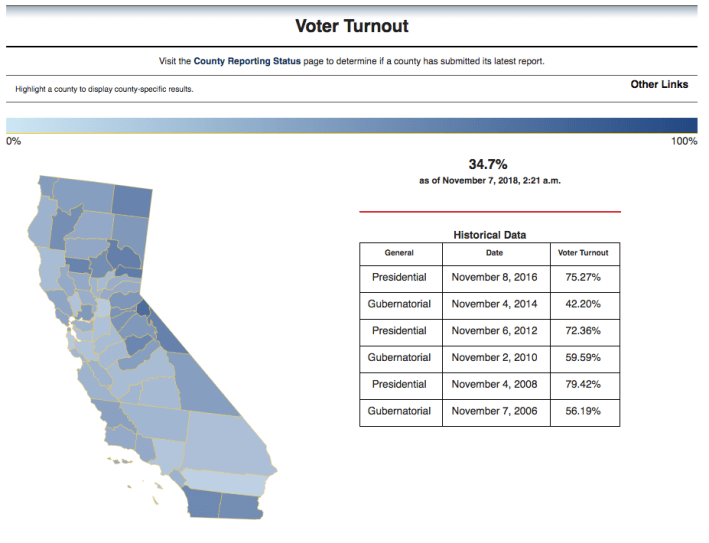
Here are how other state-level races and ballot measures panned out: key among them, the Republican-led effort to repeal the state Legislature's "gas tax" was defeated with Proposition 6, meaning infrastructure projects for roads and freeways will move forward.
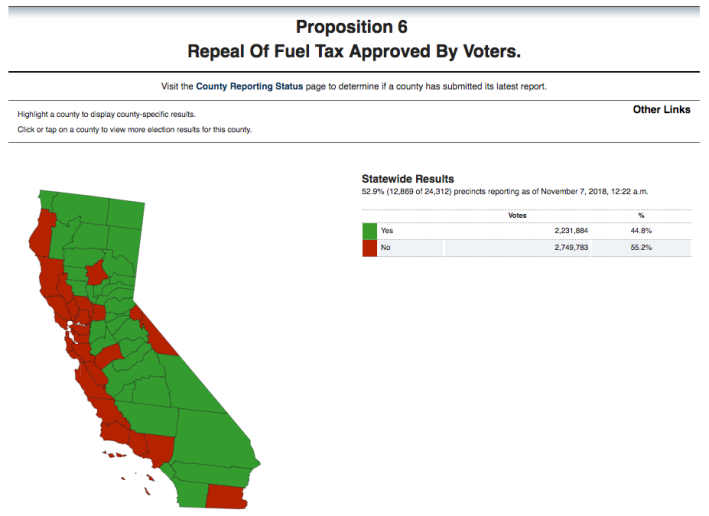
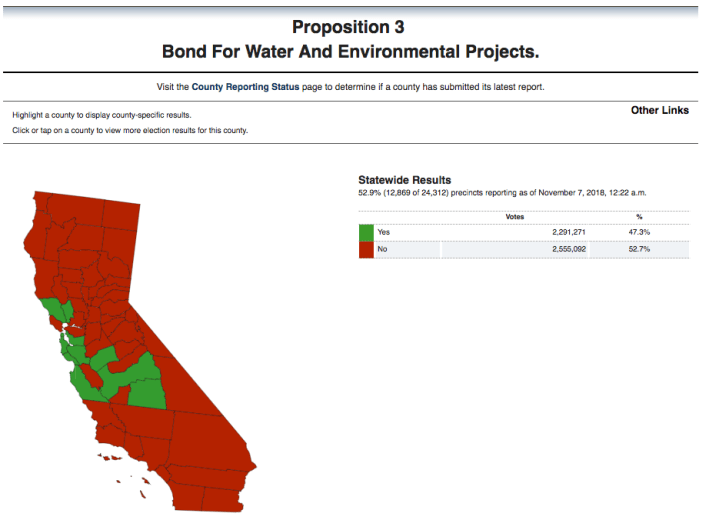
Only the most farming- and agriculture-dependent counties in the state's Central Valley voted against a measure that would push California to abandon Daylight Savings Time. A legislative drive is needed as well as eventual federal approval for the state to officially kill the time-change.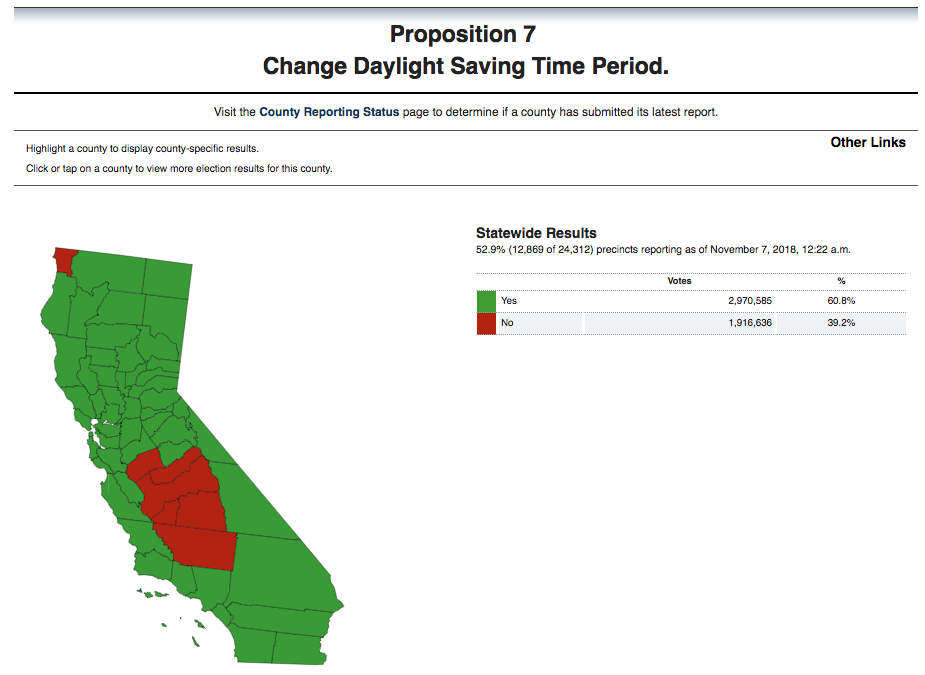
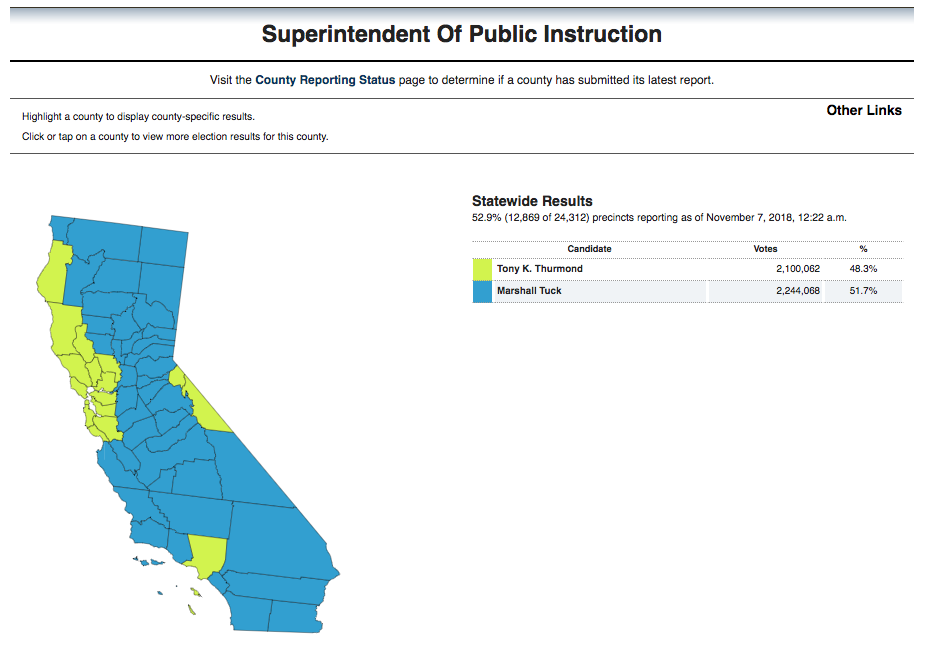
* Check back for more updates throughout Wednesday.
RELATED: The Fundamental Choice Between Dianne Feinstein and Kevin de Leon for U.S. Senate







